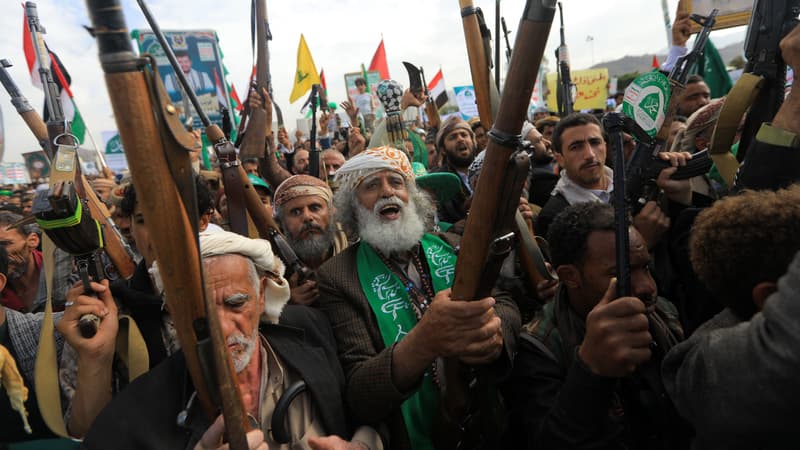The Hutis rebels in Yemen promised on Saturday, August 30 to avenge after the death of their prime minister Ahmad Ghalleb al-Rahwi, killed in Israeli attacks on the Sanaa capital earlier this week.
He is the highest politician known by Houthis who has been killed in such raids since the beginning of the war in the Gaza Strip between Israel and the Palestinian Islamist movement Hamas in October 2023.
A press release from the “Presidency” of Los Hutíes announced the death of Ahmad Ghalleb al-Rahwi and several of his ministers “in the attack led Thursday by the Israeli enemy while they were at a meeting in Sanaa.”
According to the text, cited by his Al-Massirah channel, “several of his colleagues were injured, some serious.”
The Israeli army confirms the death of the senior official
On Saturday night, the Israeli army confirmed in a statement to have killed Ahmad Ghalleb al-Rahwi “, as well as other senior officials” in a strike against an installation in Yemen refugeing the senior military officials and other senior officials of the Houthi terrorist regime. “
“The strike was possible thanks to the exploitation of an opportunity in terms of intelligence and the realization of a rapid operating cycle, which took place in a few hours,” the text said.
In a separate press release, the Hutis announced the appointment of Mohammed Ahmad Mouffah “Prime Minister” to succeed Ahmad Ghalleb al-Rahwi, who was appointed in August 2024.
Months of Israeli strikes
Israel has been leading attacks against Hutis objectives in Yemen in the missile and rebels against the Israeli territory, mainly intercepted by the army for months.
With the support of Iran, an enemy jury of Israel, the hutis claim to launch these attacks in “solidarity” with the Palestinians of Gaza, in the control of the war caused by the unprecedented attack of Hamas against Israel on October 7, 2023.
“We promise God, the dear Yemeni people and the families of the martyrs and the wounded that we will avenge,” said Mehdi Al-Machat, head of the Supreme Political Council, in a video message on Telegram. “The dark days are waiting for you,” he added, addressing Israel.
Mehdi Al-Machat also called “all companies (foreigners) present in the occupant entity” (Israel) to leave “before it is too late.” According to reports, the rebels reported on SANAA on Thursday, without specifying the objectives.
Great regions under the control of the rebels
Yemeni rebels have controlled large sides of the country in the war since 2014, including Sanaa, where their political institutions have installed. The internationally recognized Yemeni power, persecuted from Sanaa, is based in Aden, the big city in the south.
On Wednesday, the Hutis claimed a missile shot against Israel, which was intercepted according to the Israeli army, a few days after the Israeli air raids last Sunday against the presidential palace and a fuel storage site in SANAA that had killed 10 people according to the insurgents.
After these raids, Israeli Prime Minister Benjamin Netanyahu had warned that “the Houthi terrorist regime will pay a very high price for its assault against the state of Israel.”
Regions under the control of Houthi target
Israel has attacked its regions under the control of Houthi, including ports in the west of the country and Sanaa airport.
“We will not deviate from the fight against the American-Sionist project and continue to climb until the assault and lifting of the blockade (Israeli) against Gaza warned the same day that the Hutí political office.
Hamas described on Saturday the strikes that killed huti officials as “atrocious crime.”
Houthi attacks in the Red Sea
In addition to the attacks in the direction of the Israeli territory, the rebels resumed in July, after a rest of several months, their attacks outside Yemen, in the Red Sea or in the Gulf of Aden, against the ships that accuse Israel.
In May, a truce had completed with the United States that had finished months of American bombardment in Yemen, in exchange for stopping their attacks against ships on this strategic maritime road for world trade.
The war in Yemen made hundreds of thousands of deaths and sank this poorest country in the Arabian Peninsula in one of the worst humanitarian crises in the world.
Source: BFM TV


